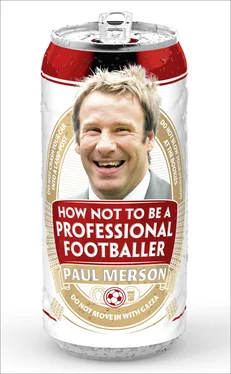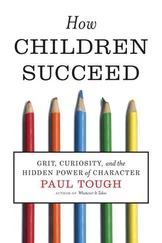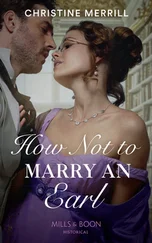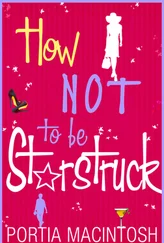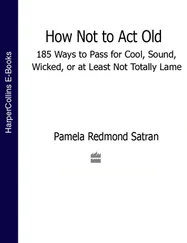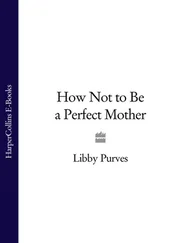I loved celebrating with the Arsenal crowd. It was a completely different atmosphere at football matches back then. There was a real edge to the games. Remember, this was a time before the Hillsborough disaster and the Taylor Report and there were hardly any seats in football grounds. Well, not when you compare them with today’s fancy stadiums. The fans swayed about and the grounds had an unbelievable atmosphere. I loved it when there were terraces. Football hooliganism was a real problem back then, though. It could get a bit naughty sometimes.
I’d always learn through mates and fans when there was going to be trouble in the ground. If Arsenal were playing Chelsea at Highbury, I’d always hear whispers that their lot would be planning on taking the North Bank in a mass ruck. The players would talk about it in the dressing-room before games, and whenever there was a throw-in or a break in the play, I’d look up at the stands, just to see if it was kicking off.
You could have a bit of fun with the supporters in those days, and we often laughed and joked with them during the games. If ever we were playing away and the home lot were hurling insults at us, we’d give it back when the ref wasn’t looking. It happened off the pitch as well, but sometimes we went too far.
I remember when Arsenal played Chelsea at Stamford Bridge in 1993. After the game a group of their fans started chucking abuse at our team bus, they were even banging on the windows. I was sat at the back, waiting for Steve Bould’s eating competition to kick off, when all of a sudden our striker, Ian Wright, started to make wanker signs over the top of the seats. All the fans could see was his hand through the back window, waving away. They couldn’t believe it.
I nearly pissed myself laughing as the coach pulled off, but I wasn’t so happy when we suddenly stopped a hundred yards down the road. The traffic lights had turned red and Chelsea’s mob were right on top of the bus. They were throwing stuff at the windows, lobbing bottles and stones towards Wrighty’s seat. All I could think was, ‘Oh God, please don’t let them get on, they’ll kill us.’ Luckily the lights changed quickly enough for us to pull away unhurt. I don’t think anyone had a pop at the fans for quite a while after that.
All of a sudden, I was in the big time and so were Arsenal. By the time the 1988–89 season was in full swing, my name was everywhere and I had a big reputation. George had made me a regular in his team and I’d started 35 games, scoring 14 times as centre-forward. I did so well I was awarded the PFA Young Player of the Year. I even had nicknames – the Highbury crowd called me ‘Merse’ or ‘The Magic Man’. There was probably some less flattering stuff as well, but I didn’t pay any attention to that.
With our defeat at Derby and draw against Wimbledon, and Liverpool’s 5–1 win over West Ham, the title boiled down to the last game of the season, an away game at Anfield on Friday 26 May. Liverpool were top of the table by three points, we were second. Fair play to them, they’d been brilliant all year and hadn’t lost a game since 1 January. We still had a chance, though. We knew that if we did them by two goals at Anfield, we’d pinch it on goal difference.
Anfield was the ultimate place to play as a footballer back then. Before a Saturday game at Liverpool, probably around 1.30, the away team would go on to the pitch to have a walk around. George liked us to check out the surface and soak up the atmosphere on away days. Anfield was always buzzing because the Kop was packed from lunchtime. They’d sing ‘You’ll Never Walk Alone’, wave their scarves, and surge backwards and forwards, side to side, like they were all on a nightmare ferry crossing to France. It always made me double nervous.
‘Oh shit,’ I’d think. ‘Here we go.’
Weirdly, I wasn’t nervous when we played them at their place on the last day of the 1988–89 season, mainly because nobody had given us a cat-in-hell’s chance of winning the League. Nobody won by two goals at Anfield in those days. Before the game, my attitude was, ‘No way, mate. It ain’t happening.’
The game had become a title decider because of the Hillsborough disaster. It had originally been scheduled for April, but after the FA Cup semi-final between Liverpool and Forest at Sheffield Wednesday’s ground, where 96 Liverpool fans were crushed to death in the stands before kick-off, it was postponed until the end of May, after the final. Liverpool got through against Forest and won the FA Cup, beating Everton of all teams 3–2, not that any Everton fan would begrudge them after all that. Now it was up to us to stop them from doing the double.
I could understand the faffing about with the fixtures, because Hillsborough was one of the worst things I’d ever seen in football. In 1985, I’d watched the Heysel Stadium disaster on the telly. It made me feel sick. I’d turned on the telly hoping to see the European Cup Final between Liverpool and Juventus, but instead I watched as bodies were being carried out. A riot had kicked off, and as fans tried to escape the trouble a wall collapsed on them. Hills-borough was just as bad. I was supposed to pick up my PFA Young Player of the Year Award at a fancy ceremony on the day that it happened, but after seeing the tragedy on the news, I really wasn’t interested. Everything seemed insignificant after all those deaths.
The fixture change pushed us together on the last day of the season in a grand finale. Because the odds were stacked against us and everyone was writing Arsenal off, it had become a free game for the lads, a bonus ball on the calendar. In our heads, we knew George had turned the team around after Don had resigned. Considering Arsenal hadn’t won the League for ages, coming second in the old First Division in 1989 would have been considered a massive achievement by everyone, even though we’d been top for ages before falling away. We were still a young side, discovering our potential, and there was no shame in being runners-up behind an awesome Liverpool team that included legends like Ian Rush, John Aldridge, John Barnes, Peter Beardsley and Steve McMahon. It would have been phenomenal really.
George still pumped us full of confidence. During the week before the game he banged on about how good we were and how we could beat Liverpool. He planned everything as meticulously as he planned his appearance, which was always immaculate. We went up to Merseyside on the morning of the game that Friday, because George wanted to cut out the nerves that would have built up overnight if the team had stayed together. We got into our hotel in Liverpool’s town centre at midday, ate lunch together and then went to our rooms for a three-hour kip.
I never roomed with anyone in those days, because nobody would share with me. The main reason was that I could never get to sleep. I was too excitable and that always drove the other lads mad. Nobody wanted to deal with my messing around before a big game, but in the end I got to enjoy my own privacy. The great thing about having a room to myself was that I could wax the dolphin whenever I wanted.
At five-thirty we all went downstairs for the tactical meeting and some tea and toast. George lifted up a white board and named the team: John Lukic in goal; a back five of Lee Dixon, Nigel Winterburn, Tone and Bouldy, with David O’Leary acting as a sweeper. All very continental. I was in midfield with Rocky, Mickey and Kevin Richardson. Alan Smith was playing up front on his own. George told us who was picking up who at set-pieces, and then he told us how to win the game.
‘Listen, don’t go out there and try to score two goals in the first 20 minutes,’ he said. ‘Keep it tight in the first half, because if they score first, we’ll have to get three or four goals at Anfield and that’s next to impossible. Get in at half-time with the game nil-nil.
Читать дальше
